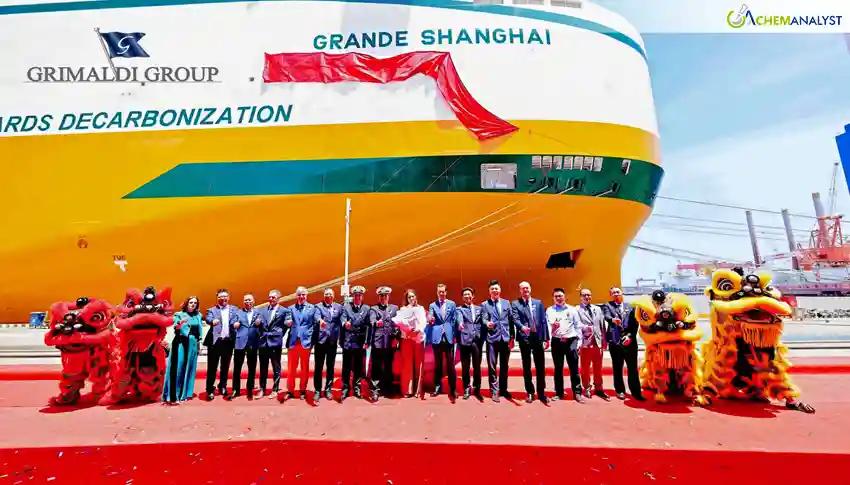Welcome To ChemAnalyst

Global vehicle shipping line Grimaldi Group has launched its first "ammonia-ready" vessel, the Grande Shanghai, marking a significant step toward a decarbonized future for the maritime industry.
In a major move toward sustainable shipping, the Grimaldi Group, a leading global vehicle shipping line, has taken delivery of its inaugural ammonia-ready vessel, the Grande Shanghai. The new pure car and truck carrier (PCTC), with a capacity of 9,000 car equivalent units (CEU), is the first of a series of 10 next-generation vessels commissioned from China Merchants Heavy Industries. This development highlights a growing trend in the maritime sector where companies are building ships with the capability to transition to future fuels, even as a clear path to widespread adoption remains in development.
The Grande Shanghai is not only equipped with energy-saving devices and a low-consumption engine but also holds an "Ammonia Ready" class notation. This certification, from bodies like RINA, signifies that the vessel's design includes the necessary provisions—such as dedicated space for fuel tanks and safety systems—to be converted to run on ammonia as a fuel in the future. This approach allows Grimaldi to capitalize on immediate fuel efficiencies while positioning itself to adopt a carbon-free fuel as it becomes commercially viable.
The adoption of "ammonia-ready" vessels comes amid a broader industry push for decarbonization. A report from Lloyd’s Register’s Maritime Decarbonisation Hub (MDH) in October 2024, the "Zero Carbon Monitor," noted that a critical priority for the industry is to develop reliable supply and infrastructure for future fuels. The report highlighted that investment decisions for new vessels are heavily influenced by the confidence that zero- or near-zero-emission fuels will be readily available and affordable. The collaborative efforts of stakeholders across the entire value chain—from fuel producers to ports and shipping lines—are essential to create the supply chains needed to accelerate the adoption of these new fuels.
While ammonia is a promising carbon-free fuel, its widespread use is not without significant challenges. The MDH report and other industry analyses emphasize that ammonia's toxicity, corrosive nature, and the potential for fire and explosion require specialized handling, advanced safety systems, and extensive crew training. Mitigating these safety risks is a top priority for regulators and classification societies as they work to develop the necessary frameworks to ensure safe operations. Additionally, the production of "green" ammonia, which is made using renewable energy, must scale up to meet the future demands of the shipping industry.
We use cookies to deliver the best possible experience on our website. To learn more, visit our Privacy Policy. By continuing to use this site or by closing this box, you consent to our use of cookies. More info.
